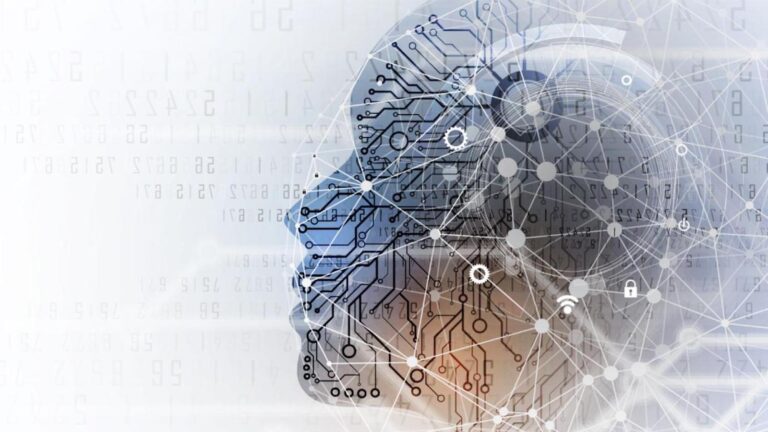Artificial Intelligence is developing at an extremely rapid pace. Witnessing the growth of this technology, politicians, pundits, and even entrepreneurs have raised concerns over the lack of regulation in the AI space. The U.S. Chamber of Commerce just released a vague report calling for regulation, and Representative Jacob Auchncloss (D-MA) recently advocated for urgent regulation of AI, especially chatbots like OpenAI’s ChatGPT. Even OpenAI’s CEO Sam Altman says regulation of other chatbots—but not necessarily his own, of course—is needed.
The government must not preemptively impose burdensome rules on AI developers and risk halting the progress of innovators.
There are two ways for the state to approach the development of technology: permissionless innovation or the precautionary principle. Permissionless innovation encourages innovators to experiment and take risks without the need for prior approval, whereas the precautionary principle posits that regulators should try to control technological development and slow its pace while they try to determine whether it is harmful.
The technological advance we have witnessed over the past few decades would not have been possible without permissionless innovation. For example, commercial activity was barred from the internet prior to the 1990s, and early restrictions on the net withheld great opportunities for economic growth and increasing prosperity. But ultimately, the autonomy provided by an approach of permissionless innovation led to the commercialization of the internet and its incredible form we know today.
In his book Permissionless Innovation: The Continuing Case for Comprehensive Technological Freedom, Mercatus Center scholar Adam Thierer writes, “If public policy is guided at every turn by the precautionary principle, technological innovation is impossible because of fear of the unknown; hypothetical worst-case scenarios trump all other considerations.” He is right. Discussion of doomsday-type outcomes often dominates the conversation when revolutionary technology is developed. If this fear were successfully used to justify onerous restrictions, our world would be far less developed than it is today.
There are unbelievable benefits to be incurred from the growth of AI across all industries. Like the internet before it, AI will benefit humanity in ways we cannot predict.
But yes, there are certainly risks involved too.
AI systems have biases, and they are not perfect. ChatGPT, for example, does produce incorrect answers at times. AI technology can also be used to produce “deep fakes,” which are photos or videos depicting people making statements or taking actions that they never did. It would be a mistake to treat AI as god-like and believe it is without error or won’t be used in nefarious ways. But the same can be said about search engines, blogs, social media, and cable news today. Bias and misinformation were issues long before AI.
There is also a lurking fear that AI will displace an enormous number of workers. While it is true that technological innovation can eliminate jobs, it is also a powerful job creator. Maybe this time will be different, but as of now, we have no good reason to think so.
Concerns of technology-induced mass unemployment are nothing new. Jeffry Miron, Vice President of Research at the Cato Institute, published a list of examples dating back to 69 A.D. wherein public figures and media members disparaged technological innovation due to fear of worker displacement. Their doomsday predictions were all wrong. In 1989, a study by the International Metalworkers Federation predicted that by 2019 just 2% percent of the world’s labor force would “be needed to produce all the goods necessary for total demand.” This prediction was clearly way off base; the world’s unemployment rate currently sits at just 6.2%.
Despite the risks that come with revolutionary technology, innovation proves fearmongers wrong by improving the lives and society of its users. Technological development enhances worker productivity and creates new jobs for human labor. Ultimately, this leads to better and cheaper products, which makes society richer as a whole.
Politicians must not let fear drive them to impose crushing regulations on AI developers. We must all reject the precautionary principle and encourage the permissionless innovation that has benefited society so much in recent decades.














This blog post was so incredibly helpful and informative. I’ve learned so much from it. Thanks for taking the time to share it
[…] compliance costs. For anti-AI ideologues, that’s exactly the point. If lawmakers embrace this precautionary approach, California will self-sabotage its burgeoning AI ecosystem, destroying the U.S.’s edge […]
[…] compliance costs. For anti-AI ideologues, that’s exactly the point. If lawmakers embrace this precautionary approach, California will self-sabotage its burgeoning AI ecosystem, destroying the U.S.’s edge […]
[…] prices. For anti-AI ideologues, that’s precisely the point. If lawmakers embrace this precautionary strategy, California will self-sabotage its burgeoning AI ecosystem, destroying the U.S.’s edge […]
[…] compliance costs. For anti-AI ideologues, that’s exactly the point. If lawmakers embrace this precautionary approach, California will self-sabotage its burgeoning AI ecosystem, destroying the U.S.’s edge […]
[…] compliance costs. For anti-AI ideologues, that’s exactly the point. If lawmakers embrace this precautionary approach, California will self-sabotage its burgeoning AI ecosystem, destroying the U.S.’s edge […]
[…] prices. For anti-AI ideologues, that’s precisely the point. If lawmakers embrace this precautionary method, California will self-sabotage its burgeoning AI ecosystem, destroying the U.S.’s edge in […]
[…] compliance costs. For anti-AI ideologues, that’s exactly the point. If lawmakers embrace this precautionary approach, California will self-sabotage its burgeoning AI ecosystem, destroying the U.S.’s edge […]
[…] compliance costs. For anti-AI ideologues, that’s exactly the point. If lawmakers embrace this precautionary approach, California will self-sabotage its burgeoning AI ecosystem, destroying the U.S.’s edge […]
[…] compliance costs. For anti-AI ideologues, that’s exactly the point. If lawmakers embrace this precautionary approach, California will self-sabotage its burgeoning AI ecosystem, destroying the U.S.’s edge […]
[…] compliance costs. For anti-AI ideologues, that’s exactly the point. If lawmakers embrace this precautionary approach, California will self-sabotage its burgeoning AI ecosystem, destroying the U.S.’s edge […]
[…] compliance costs. For anti-AI ideologues, that’s exactly the point. If lawmakers embrace this precautionary approach, California will self-sabotage its burgeoning AI ecosystem, destroying the U.S.’s edge […]
[…] compliance costs. For anti-AI ideologues, that’s exactly the point. If lawmakers embrace this precautionary approach, California will self-sabotage its burgeoning AI ecosystem, destroying the U.S.’s edge […]